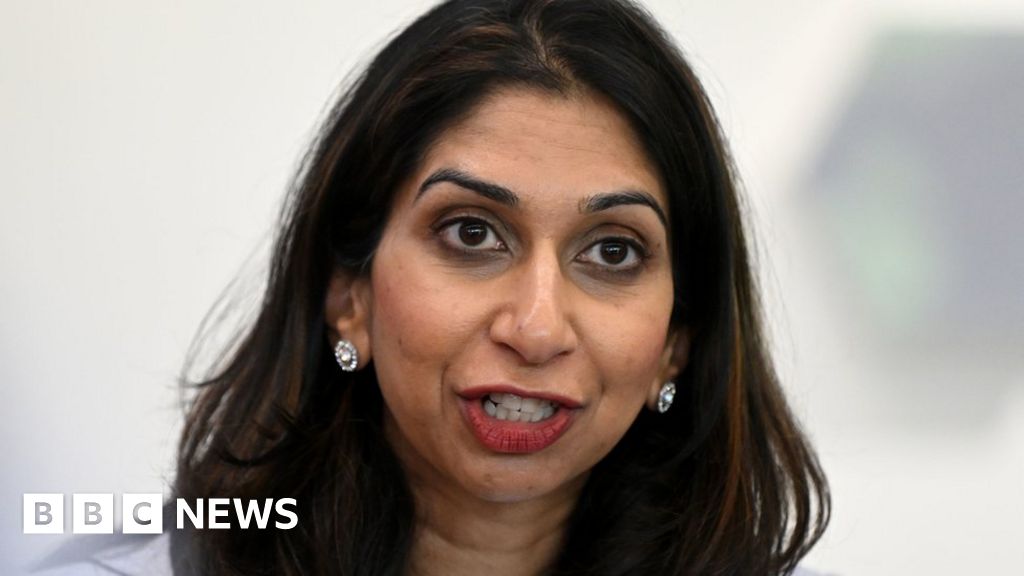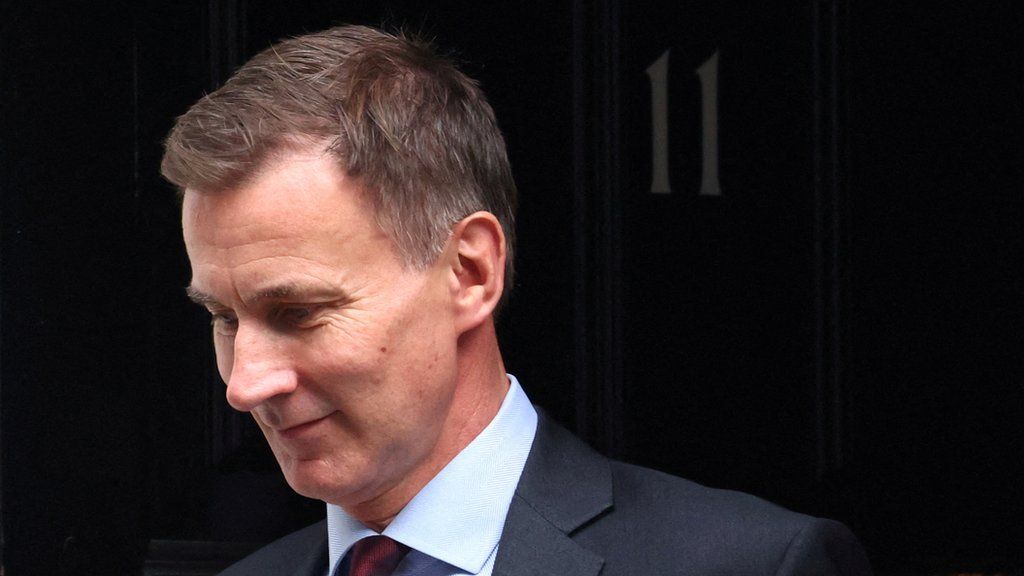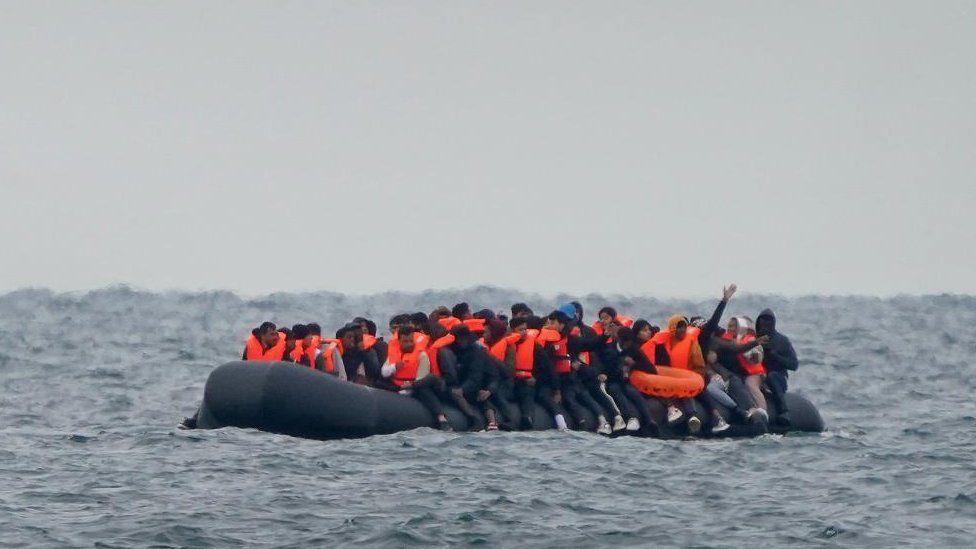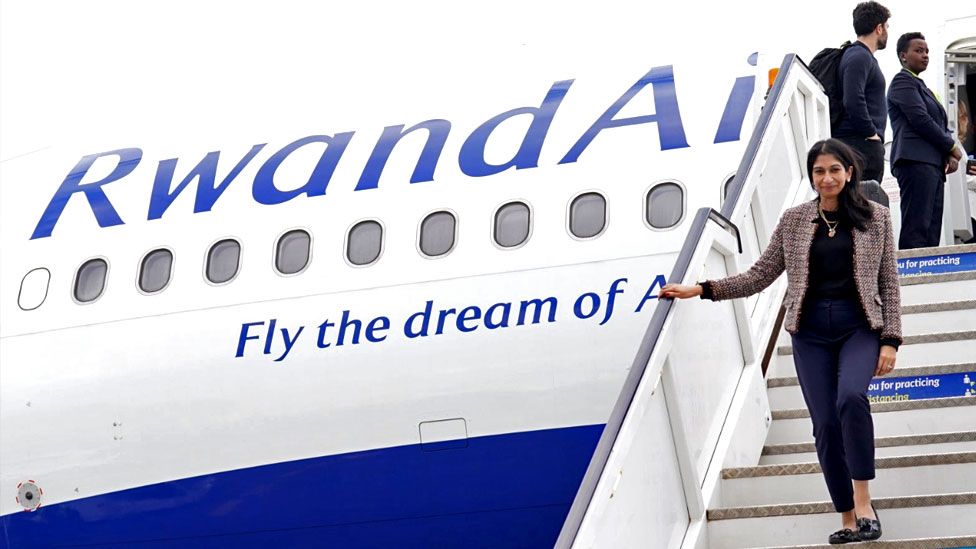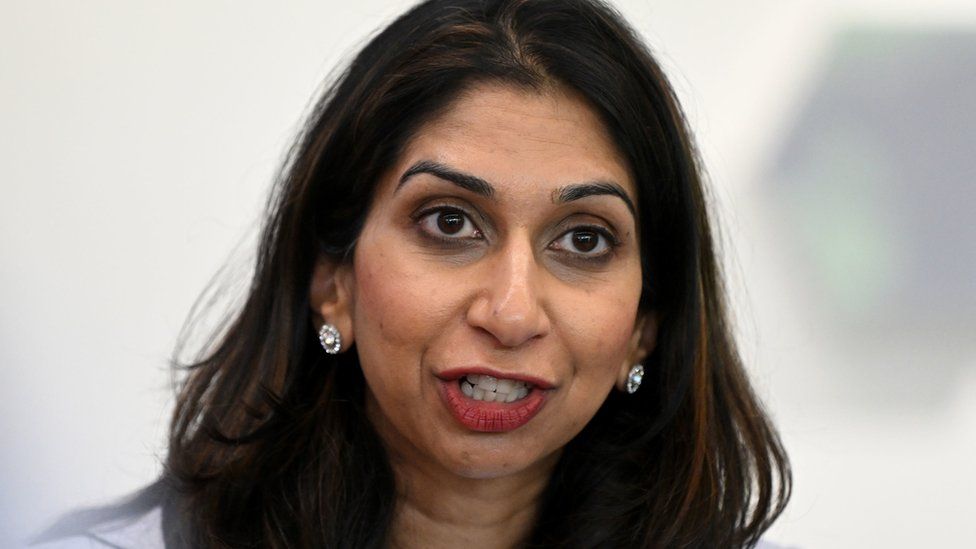
The PM’s current Rwanda plan will mean no asylum seekers are flown there before the next election, former Home Secretary Suella Braverman has said.
Writing in the Telegraph, she said “tinkering with a failed plan” would not achieve the government’s aims.
The Supreme Court ruled the Rwanda policy was unlawful on Wednesday.
Hours later, Rishi Sunak announced plans for emergency legislation and a new treaty with Rwanda, so that the first flights can leave in the spring.
But Mrs Braverman said a new treaty would not solve “the fundamental issue” with the plan – that the UK’s highest court had decided there was a risk Rwanda could return asylum seekers to countries they had fled from, putting them at risk of harm.
In its ruling, the Supreme Court said there were “substantial grounds” to believe people deported to Rwanda could be sent back to places where they would be unsafe.
In her first detailed response to the ruling, Mrs Braverman, who was sacked as home secretary on Monday, said that unless the prime minister went further than his current proposals she could not see how the government could deliver on its pledge before running out of Parliamentary time.
“To try and deliver flights to Rwanda under any new treaty would still require going back through the courts, a process that would likely take at least another year,” she said.
“That process could culminate in yet another defeat, on new grounds, or on similar grounds to Wednesday: principally, that judges can’t be certain Rwanda will abide by the terms of any new treaty.”
She added: “That is why the plan outlined by the PM will not yield flights to Rwanda before an election if Plan B is simply a tweaked version of the failed Plan A.”
A general election is expected to be held next year and one must be called by January 2025.
Mrs Braverman said that to prevent further legal challenges, the PM’s proposed legislation should ignore “the entirety” of the Human Rights Act and the European Convention on Human Rights (ECHR), as well as other relevant international obligations, including the Refugee Convention.
To address the Supreme Court’s concerns, Mrs Braverman argued the UK must take practical steps to improve Rwanda’s asylum system, for example by embedding UK observers or independent reviewers of asylum decisions there.
She said legislation must also make clear those arriving in the UK illegally will be detained until they are removed.
Mrs Braverman added that a bill should be introduced by Parliament’s Christmas recess and MPs should be recalled to sit and debate it over the holiday period.
In language tamer than her recent public interventions, she said there was “no reason” to criticise Supreme Court judges for their ruling.
Instead, she blamed “the politicians who have failed to introduce legislation that would guarantee delivery of our Rwanda partnership”.
In a scathing letter after her sacking, Mrs Braverman accused the prime minister of “magical thinking” and betraying his promise to stop small boat crossings.
This video can not be played
To play this video you need to enable JavaScript in your browser.
The prime minister says the new treaty would guarantee that Rwanda would not send migrants back to countries where they could be persecuted or harmed. He is also proposing legislation to certify that Rwanda is a “safe” country – despite the Supreme Court’s findings.
The Rwanda policy is central to Mr Sunak’s plan to stop asylum seekers crossing the Channel in small boats – one of his key pledges – as it is designed to deter people from making the dangerous journey.
Earlier, Chancellor Jeremy Hunt said the government was “hopeful” Rwanda flights would take off next year but that he could not “guarantee” this.
Downing Street has said legislation would be produced “in the coming weeks”.
However, it is expected to face opposition in the House of Lords and many are also anticipating further legal challenges in the courts.


It’s not immediately clear how Mrs Braverman’s plan would legally work quickly.
The UK and other countries that are signed up to the European Convention on Human Rights can only put to one side some of its protections in times of war or some other emergency. The key protection at the heart of the Rwanda case – that nobody should be subjected to torture or to inhuman treatment – is not one of the rights that can be swept away in what’s known as “derogation”.
The UK has only derogated from the ECHR eight times in 70 years. Seven of those situations were related to detaining paramilitaries during the conflict in Northern Ireland. The most recent in 2001 concerned holding al-Qaeda suspects without charge – a move that the courts later said was illegal.
During Boris Johnson’s time as prime minister, the government proposed limiting and replacing some human rights protections in a highly-criticised replacement bill which Rishi Sunak then scrapped.
Leaving the ECHR entirely would separately breach the 25-year-old Good Friday Agreement at the heart of Northern Ireland’s power-sharing peace deal – and enrage the UK’s partners on the other side of the English Channel – potentially making co-operation on stopping boats harder.
